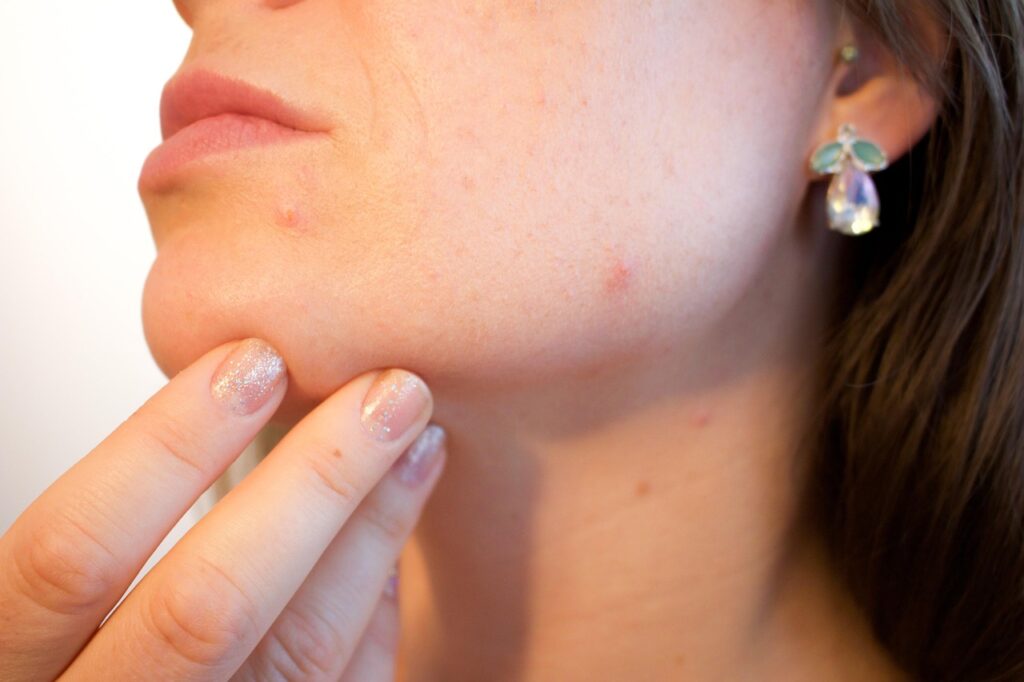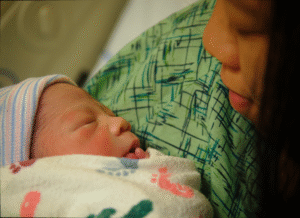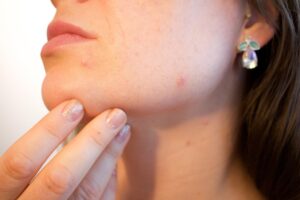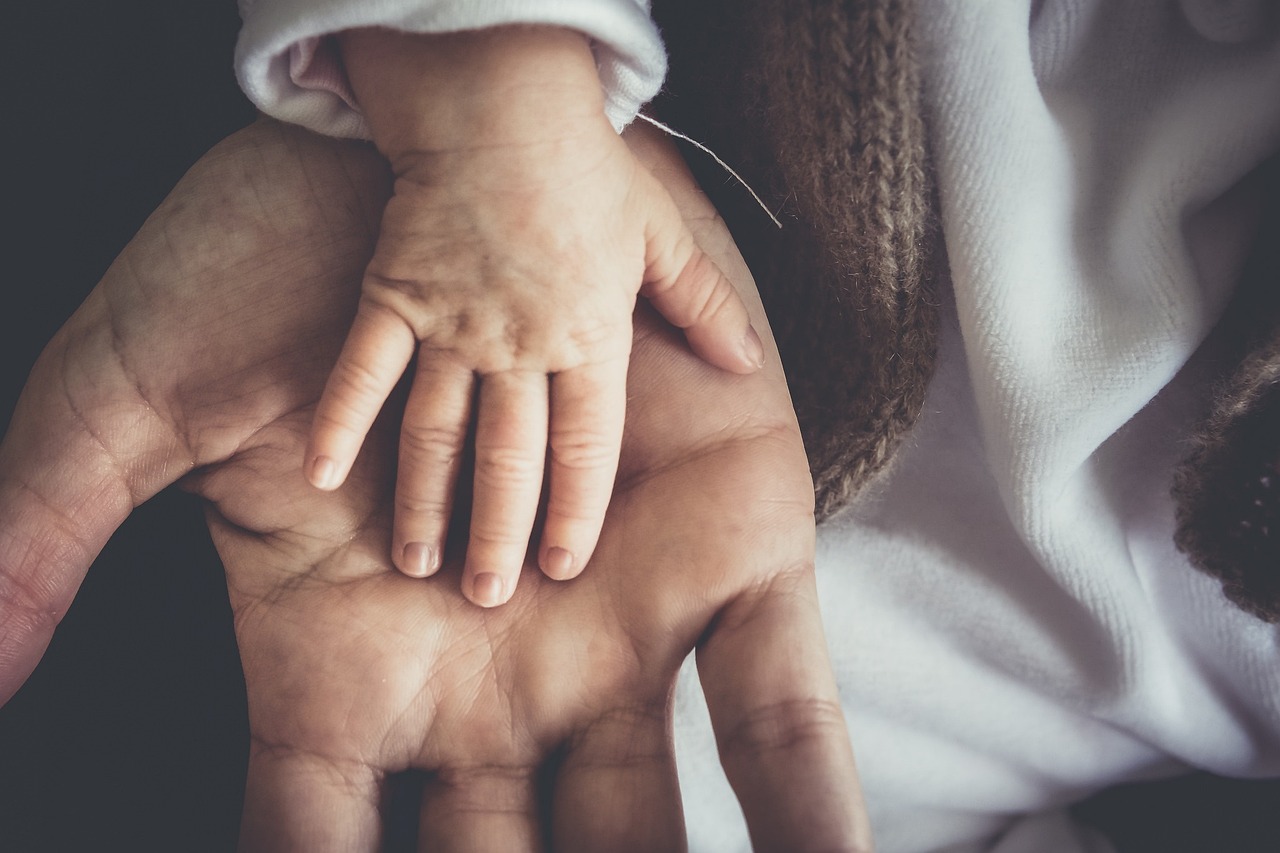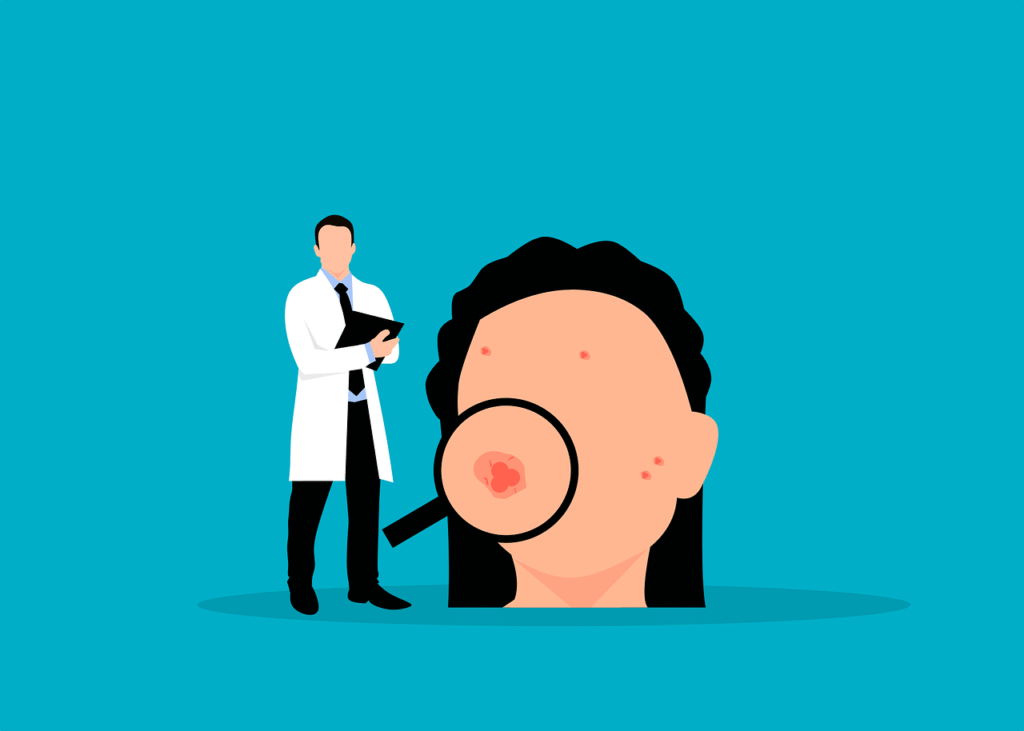
What Causes Breakouts? An Introduction to Acne Triggers
Acne breakouts are a common skin problem for teenagers and adult women. Many factors can contribute to acne, and understanding what causes breakouts is the first step in managing them. Hormonal shifts, diet, stress, and more can all play a role. By learning about these triggers, you can begin to prevent acne and achieve clearer skin.
Major acne triggers include hormones, diet, stress, poor sleep, environmental factors, skincare habits, and genetics. Each of these affects your skin differently. Below, we explore how each factor may lead to acne and what you can do about it.
Hormonal Acne in Women and Teens
Hormonal fluctuations are a top cause of acne, especially in women and teens. Changes during puberty or the menstrual cycle, and conditions like pregnancy, menopause, or PCOS can increase oil production in the skin. When excess oil mixes with dead skin cells, it can clog pores and lead to pimples or cysts. Hormonal acne in women often shows up on the lower face, jawline, and chin.
Balancing hormones through lifestyle changes (like exercise and diet) or talking to a doctor can help manage breakouts. Over-the-counter treatments or prescription medications (such as birth control pills or topical retinoids) may also be recommended for stubborn hormonal acne.
Key points about hormonal acne:
Hormone spikes (puberty, menstruation, pregnancy) trigger extra oil production.
Androgens (male hormones) increase sebum (oil) levels, even in women.
Polycystic Ovary Syndrome (PCOS) often causes persistent acne in adult women.
Hormonal acne typically appears on the chin, jawline, and neck.
Stress and Acne: Understanding the Connection
Stress triggers the release of cortisol, a hormone that can increase oil production and inflammation in the skin. When you’re stressed — whether from work, school, or personal life — you may notice more breakouts. Additionally, stress often disrupts sleep and routines, which can further worsen acne. Managing stress effectively can help reduce these stress-related breakouts.
How stress can cause breakouts:
High cortisol levels from stress boost skin’s oil (sebum) production.
Stress increases inflammation, making acne pimples redder and larger.
Stress can lead to poor sleep, which reduces skin’s ability to repair itself.
During stressful times, people may pick at their skin more or skip skincare, making acne worse.
Diet and Acne: What You Eat Matters
What you eat can affect your skin’s health. Foods high in sugar and refined carbs can spike insulin levels, which may lead to increased oil production and clogged pores. Some studies link dairy products (like milk and cheese) to acne breakouts in some people.
On the other hand, eating foods rich in omega-3 fatty acids (such as salmon, walnuts, and flaxseed) and antioxidants (found in berries and leafy greens) may help reduce inflammation and support clearer skin. Staying hydrated and maintaining a balanced diet helps regulate hormones and can reduce acne flare-ups.
Diet tips for acne-prone skin:
Choose low-glycemic foods (whole grains, vegetables, legumes) to stabilize blood sugar.
Limit sugary snacks, sodas, and white flour products that can trigger breakouts.
Observe if dairy worsens your acne; consider reducing dairy intake if needed.
Eat more anti-inflammatory foods (like fish, nuts, and colorful fruits and vegetables).
Drink plenty of water to flush out toxins and keep skin hydrated.
Sleep and Skin: Rest for Clearer Complexion
Getting enough quality sleep is essential for healthy skin. During deep sleep, your body repairs and regenerates skin cells. Chronic lack of sleep can raise stress hormones and inflammation, which may worsen acne. A good sleep routine (about 7-9 hours per night) helps balance hormones and keeps your skin looking fresh and healthy.
Sleep and acne connection:
Insufficient sleep raises stress (cortisol), leading to more oil and pimples.
Well-rested skin recovers faster and resists acne better.
Aim for consistent sleep patterns and a restful environment for clearer skin.
Environment and Acne: External Triggers
Environmental factors like pollution, weather, and air quality can influence your skin. Air pollution and dust can settle on your skin, clogging pores and causing irritation if not washed off. Hot, humid weather often increases sweating and oiliness, while cold, dry air can strip moisture and cause your skin to overproduce oil. Being mindful of these factors and adapting your routine can help.
Regularly cleansing your face (especially after outdoor activities) and using non-comedogenic (non-pore-clogging) skincare products can protect your skin from environmental breakouts. Also remember to change pillowcases and towels often, since bacteria and oils can build up on fabrics and worsen acne.
Environmental factors to consider:
Pollution and dirt can clog pores and trigger pimples.
High humidity or heat increases sweating, leading to more breakouts.
Cold or dry climates can dehydrate skin, causing it to produce extra oil.
Use gentle, non-comedogenic skincare products suited for your climate.
Skincare Habits: Good vs. Bad Routines
How you care for your skin has a big impact on acne. Using harsh scrubs, overwashing, or picking at pimples can irritate your skin and worsen acne. Conversely, skipping cleansing or not removing makeup can allow oil and bacteria to build up. Aim for a balanced routine: wash your face gently twice a day with a mild cleanser and follow with an oil-free moisturizer and sunscreen.
Pay attention to product labels: choose oil-free, non-comedogenic products that won’t block pores. If you use acne-fighting treatments (like benzoyl peroxide or salicylic acid), start slowly to avoid drying out your skin. Consistency is key; a gentle, regular routine helps keep acne in check without irritating your skin.
Skincare tips to prevent breakouts:
Cleanse gently twice a day; avoid hot water and harsh soaps.
Don’t pick or pop pimples; this can cause infection and scarring.
Use non-comedogenic makeup and wash makeup off before bed.
Change pillowcases and towels regularly to reduce bacteria contact.
Introduce new acne products gradually to prevent irritation.
Genetics: Family History of Acne
Your genes can influence how prone you are to acne. If your parents had acne, you may be more likely to experience it too. Genetic factors affect your skin type (like having naturally oily skin) and how your body reacts to hormones. While you can’t change your genes, being aware of family history can encourage you to be proactive in your skincare habits. If your acne is severe or persistent, consulting a dermatologist is a good idea.
Conclusion: Managing Your Acne Triggers
Acne is usually caused by a combination of factors. Hormonal changes, stress, diet, sleep habits, environmental triggers, skincare routines, and genetics all play a role. By identifying which factors affect you the most, you can tailor your approach to keep breakouts under control. For example, improving your diet, sticking to a gentle skincare routine, and reducing stress can make a significant difference.
Remember that clear skin often takes time and consistent effort. If you’ve tried lifestyle changes and your acne still won’t improve, it’s wise to seek professional help. A dermatologist can recommend treatments (like prescription creams or medications) personalized for your skin. With patience and the right strategy, you can reduce acne and achieve healthier skin.

